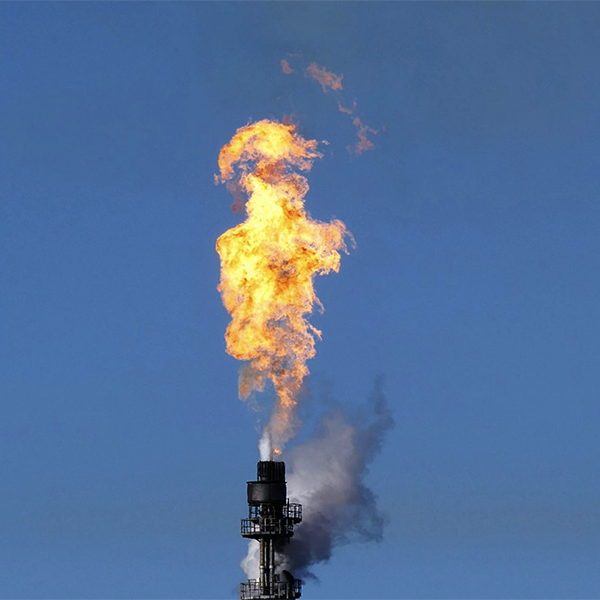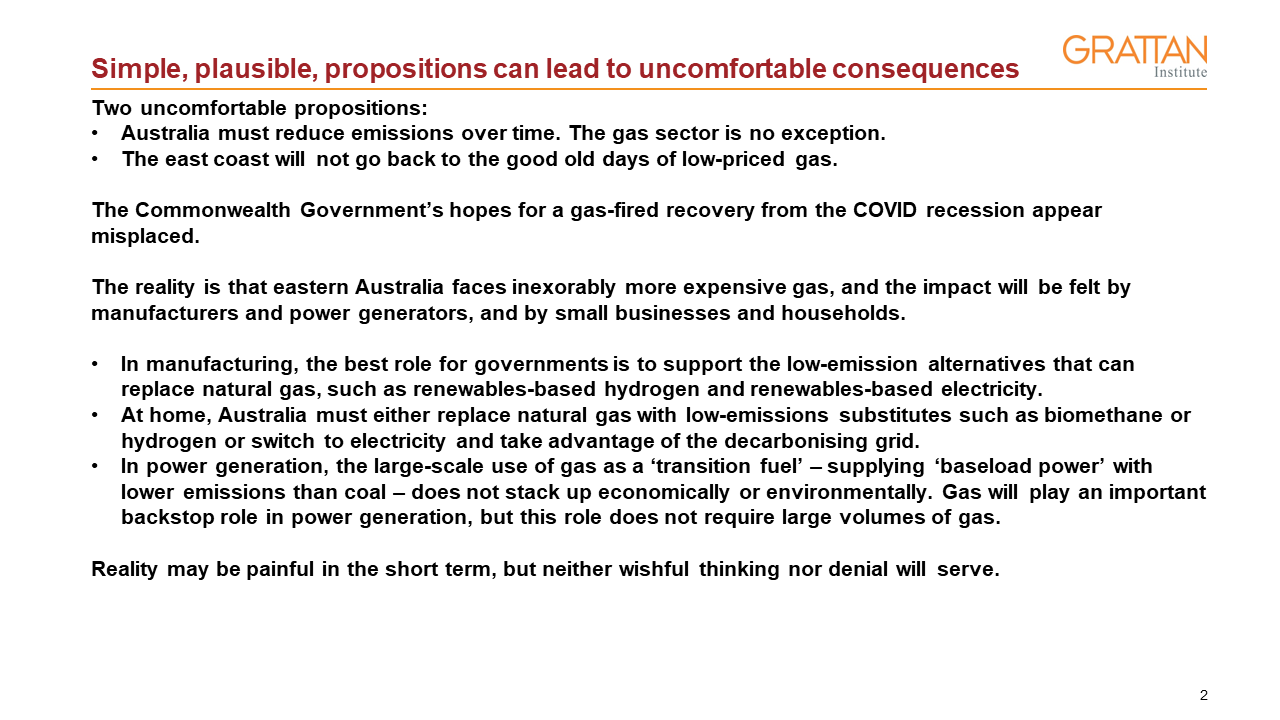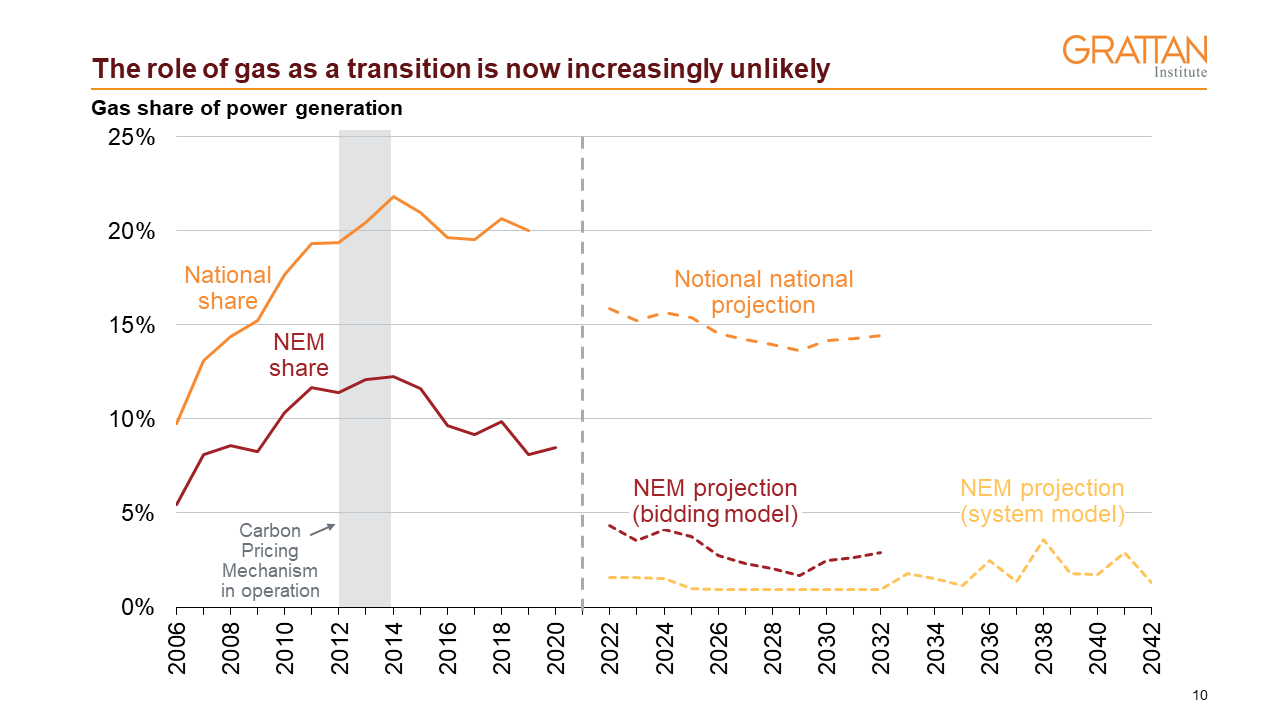An event wrap-up:- for further info, please contact Mick Nolan or David Strang (‘Energy Transition Group’)
At our March 25 meeting, we were pleased and privileged to have Tony Wood from the Grattan Institute and Bruce Mountain from the Victorian Energy Policy Centre to provide an update on gas, and some commentary on the future for gas.
You can access Tony Wood’s slides, and a recording of the event will follow in the coming weeks via our YouTube channel. We are unable to provide a recording of Bruce Mountain’s talk.
Tony Wood
Tony spoke about the insights from the Grattan Institute’s recent report (Flame Out) and their analysis of the gas situation in Australia. The Grattan Institute’s analysis shows we should face up to the facts – gas cost is high, gas price will likely remain high, and we must reduce fossil fuel emissions. These realities lead to the conclusion that we need to transition out of gas.
The Grattan Institute analysis highlights two key points:
1) Gas used to be cheap, but is not now.
2) Gas is a fossil fuel – to cut emissions we must move away from gas. And sooner rather than later.
Uncomfortable truths
Far from fueling the recovery from the COVID recession, natural gas will inevitably decline as an energy source for industry and homes in Australia, according to a recent Grattan Institute report.
‘Flame out: the future of natural gas’ shows that a combination of economic and environmental imperatives imperil the gas industry. Australia must reduce emissions over the coming decades to meet our international climate change commitments. Gas is a fossil fuel; it too must be phased out.
Australia’s east coast has already burned most of its low-cost gas and will not go back to the ‘good old days’ of low prices. Comparatively, electricity is getting cheaper, and gas is getting more expensive. Over time, gas use will decline.
The Prime Minister has talked up a ‘gas-fired recovery’ for manufacturing, raising expectations of big price reductions. But the Grattan report shows that eastern Australia faces inexorably more expensive gas. If the Government tries to swim against this tide by directly intervening in the market, taxpayers will pay the price via big subsidies.
Rather than indulging in wishful thinking or living in denial, the Federal Government and the gas industry – and its customers – should start planning now for a future without natural gas, or at least with a dramatically reduced role for natural gas.
State Governments must do the same.
Even if the Government could significantly reduce gas prices, the benefits to manufacturing are overstated. The companies that would benefit most contribute only about 0.1 per cent of gross domestic product, and employ only a little more than 10,000 people. And much of this gas-intensive industry is in Western Australia, which has low gas prices already.
In power generation, Gas does not stack up as a ‘transition fuel’ to replace coal. As Australia’s coal-fired power stations retire over coming decades, it would be more expensive to replace them with gas than to switch to more renewable energy such as wind and solar with firming. Along with batteries and hydro, gas will play an important backstop role in power generation when the sun isn’t shining and the wind isn’t blowing, but this does not require large volumes of gas.
In homes, Australia must either switch to electricity, for heating and cooking, or replace natural gas with low-emissions substitutes such as biomethane or hydrogen.
It is already clear that households would save money and Australia would reduce emissions if new houses were all-electric. Governments should impose a moratorium on new gas connections in new developments.
In industry, governments should support the development and deployment of the low-emission alternatives that can replace natural gas in manufacturing, such as renewables-based hydrogen and renewables-based electricity.
Transition summary:
Electrical Power generation – gas generators are a back-stop to ‘variable renewable energy’ (VRE such as solar PV and wind). No major issue until we reach approximately 90% VRE penetration circa 2030 to 2040.
Houses and small business – it is already cheaper for new houses to be fully electric not gas. The transition of existing housing stock should be encouraged by government to off-set more expensive appliance purchase costs. Running costs will then be lower year on year.
Large scale Manufacturing
A) High temperature heating – solutions will be developed to run on Hydrogen or Electricity (probably developed in Europe).
B) Feed-stock for e.g. fertiliser, plastics – needs development of solutions to synthesize these products using Hydrogen or Ammonia (hydrogen carrier) as the feedstock instead of natural gas as the feedstock. Over the next decade, green hydrogen (from electrolysis) will become cheaper and then take-over from fossil fuel gas.
In short: the transition off gas is readily achievable, with demonstrated solutions available!
Bruce Mountain
In Victorian housing, the biggest contributors to gas usage are space heating and water heating. With a very small amount, relatively speaking, of gas for cooking.
The low emissions solution for households is to electrify – convert to hot water from heat pumps, and space heating from reverse-cycle air conditioners (RCAC). Electrification means emission reduce year-on-year as the electricity grid moves each year to higher renewables renewables (and less coal).
An added advantage of heat pumps is that they can be readily programmed to run at the best times during the day. e.g. use roof-top solar for heating hot water around middle of day, and over time deploy smart appliances that minimise consumption at peak periods.
There has been a reduction in peak electricity demand in winter in Victoria, which is a continuing trend. This is a beneficial trend as we electrify heating of homes in winter.
So, what does a transition from gas to electric mean for greenhouse gas (GHG) emissions? Well, that is complicated but can be understood says Bruce. It depends on the speed of transition.
The quicker the transition, the more emissions are saved. A faster transition leads to lower overall emissions than a slower transition.
There are 10’s of millions of tonnes of gas emissions to be saved, if new build houses use electric appliances instead for hot water and space heating.
Likewise, there are 10’s of millions of tonnes of gas emissions to be saved if existing homes are converted from gas ducted heating and gas hot water to electric heat pump aircon and heat pump hot water.
And we can significantly reduce our gas demand elsewhere in many industrial users (e.g. food manufacturers) and in the commercial sector as indicated earlier by Tony.
Rolling out a transition for households to move away from gas will be a mammoth undertaking. Especially for installing heat pumps and educating the community. The role of government in this transition is important. The alternative, if government plays a passive role, is we end up with higher emissions and higher household costs.
Summary (Lighter Footprints editorial):
A transition must be managed
We know from previous work on the AGL import terminal at Westernport, that Gas Retailers, Suppliers, and Distributors may be negatively affected in an un-managed transition, by households shifting away from gas.
The first reason is obvious, gas use for home heating, hot water (and cooking) accounts for 43% of total gas use in Victoria (ref: Northmore Gordon Report). Reducing consumption reduces revenue for gas Retailers such as AGL and Origin.
The second reason is that as more houses move away from gas, then the cost of maintaining the distribution system (e.g. APA, MultiNet ) might be allocated to fewer customers. A passive approach by governments could mean higher costs for those households that remain on gas and may mean (but not necessarily) that businesses bear a higher distribution cost. We know businesses have already seen gas price hikes on gas price $/GJ with the ramp-up of gas export and this led to global pricing on gas use domestically. (Except in WA)
This poses political concerns which governments must work through to avoid criticism from industrial users with high gas consumption, to ensure they are not faced with higher distribution costs. It does mean that households still using gas when a significant number of households have already moved off gas, will require government intervention in transition rules – to ensure electrification does not leave households behind.
Some of our members have already made changes in their own homes, including installing a heat pump for hot water and/or reverse cycle air conditioners for heating (and cooling). The upfront costs may be higher than gas appliances, but emissions are lower and will get lower each year as the grid electricity gain a higher renewables percentage year-on-year. In addition, the average home will save hundreds of dollars per year in gas consumption and avoided gas service/connection fees.
Job creation opportunity
Job creation is more important now than for decades.
Victoria has the highest use of gas for home heating in Australia, because unlike many states, Victoria historically had cheap gas from Bass Strait. Those days are gone. Victoria has the biggest opportunity and necessity of all States to transition to heat pumps and air conditioners.
In regard to the broader Victorian economy, installing new electric appliances (specifically hot water and home air-con as heating) would create a significant number of ongoing jobs for installing electricians and plumbers, as well as in the retail appliance sales sector.
New electric appliances would also indirectly assist solar PV benefits for existing and new owners, as solar systems can be used in the middle of the day for heating hot water (as well as daytime home heating and cooling) rather than exporting electricity to the grid.
Modern heat pumps are extremely energy efficient
We all use ‘heat pumps’ already – our refrigerators are cooled by using heat pumps to move heat from inside the ‘fridge’ to outside the ‘fridge’.
We must move away from gas for home heating
We want our homes heated, not our planet trashed. Gas is a fossil fuel. It is crystal clear we must stop burning fossil fuels to tackle emissions and climate change.
Not in 2050. In this decade, 2021 – 2030. Starting now.
Our key takeaways
We consider a transition to reduce gas demand to be a unique opportunity for Victoria and the Victorian government. The opportunity means embracing short-term, mid-term and long-term strategies that create three key benefits.
- Jobs would be created in the economy for electricians and plumbers, as well as in the retail appliance sales sector.
- Annual energy bills savings would then be generated for Victorian households by going electric.
- Emissions savings would contribute to Victoria’s emissions reductions targets for 2025 and 2030.
State and Federal governments have a big role to play in creating a smoother transition. New housing estates should not be connected to gas. A more rapid transition, rather than a slower transition, at household level means less emissions, greater certainty, and lower household costs. Perhaps transition to electric is done by gas distribution region. Starting at the furthest and most expensive distribution nodes. `
Industrial gas users must accelerate the transition to a hydrogen-based feedstock. Government can assist. Hydrogen might be made close to industry point-of-use, by using electricity to power electrolysis, and creating green hydrogen. Quite possibly done close to the fertiliser and plastics manufacturers. The reduction in use of gas by the household sector might extend the life of local gas reserves until new industrial technologies become more mature and lower cost.
Our governments must not indulge in wishful thinking or live in denial. They cannot let ‘big Gas’ determine sovereign policy in the face of our existential climate crisis, and escalating gas prices.
This transition is inevitable over the next decade.
And, a planned transition is a smooth transition. A planned transition means lower emissions and lower costs.
The future is obvious. By moving away from gas, we stop burning an increasingly expensive depleting fossil fuel.
Government must set the narrative, and manage the transition. Create jobs. Manage Distribution shutdown. Assist with Appliance costs for disadvantaged households.
A win for a safer climate future and for Victoria and Australia achieving our emissions targets.
Are they up to the challenge?




